QuestionI have a pair of lovebirds that seem to have mated. I bought them from a breeder who told me they were a male and female. They seem to be just that. (I have seen him "approach" her) I feel like "duh" now because I didn't expect them to breed. She layed an egg, I didn't know she was expecting, and it cracked. So, I called a pet store that specificlly sells birds and they told me to build a nesting box. I did and she made a nest and layed more eggs. Is there anything I need to do or watch for. I haven't found many things while searching the net for this particular subject until I found this site. Anything you can tell me would be a GREAT help. Thank you in advance for all of the help you can give me.
AnswerHi, Cindy. Thanks for posting your questions.
Anytime you have a male and female bird together (or any other animal for that matter), they will eventually mate and produce offspring. A decision you need to make IMMEDIATELY is whether you want to let them incubate and hatch these eggs. Once they have started sitting on the eggs all the time (incubating them), it only takes about 7 days for the babies to start developing inside the eggs. It takes around 18 days for lovebird eggs to hatch once the parents start incubating them. You can shine a light (such as a flashlight) through the eggs (without touching them) to see a developing embryo inside the eggs. If you let these babies hatch, what do you intend to do with the babies? If you intend to sell them or give them away, you will need to handfeed them, i.e., pulling them from the parents at about 7-10 days of age after they have hatched and handfeeding them (at least 4 times per day until they are 4 weeks old) with baby bird handfeeding formula using a handfeeding syringe until they wean (at about 8 weeks of age) so that they will be tame enough to be pets in someone else's home (you will have to learn how to wean them). If you don't handfeed them, they will not be tame and you will most likely not be able to even give them away (unless someone wants to use them as breeders). Thus, you will end up with 2 adult birds and their offspring living in your home! If you do not want this, you should take the eggs from the parents IMMEDIATELY and destroy them. As a breeder and aviculturist, I HATE suggesting you do this, but if you do not know what you are doing, it will be the birds that will suffer. Or, you can let the parents take care of them through weaning, and then keep them yourself or find homes for them. If you decide to let them hatch, there's MUCH you need to learn about taking care of babies, etc. I have a website that contains a lot of information if you want to visit: http://www.angelfire.com/falcon/birdinfo/index.html
There are also many websites out there with information on breeding, handfeeding, etc. I recommend you use Google as your search engine and use search strings such as "breeding lovebirds," "handfeeding baby parrots," or similar groupings of words.
As far as what you need to do or watch for...at this point, the parents should be able to do what it takes to hatch the eggs (if they are good parents). There is so much you need to learn about all of this that I can't possibly tell you all you need to know in the short amount of time you have available. You need to spend as much time as possible learning about this subject from the internet, reading books, perhaps talking with local breeder(s), your bird vet, etc., and what you will need to do and look out for once the babies arrive through the weaning process. If you intend to handfeed, you will need to learn how to do this (there is a right and wrong way), you will need to find/purchase handfeeding formula and handfeeding syringes, you'll need a brooder/other container in order to keep them at a required temperature until they feather, and all that goes along with these processes. You will also need to find a market for the babies once they fledge/wean unless you intend to keep them all. You should also find an avian veterinarian (a dog/cat vet won't do) in case you need one quickly (DO NOT wait until the need arises because it will be too late then). This is because baby birds are born without any immunities to illness/disease (this develops with age) and sometimes get sick quickly, which requires immediate intervention by a vet. Also, some people will not buy parrots from a breeder unless the breeder can guarantee the baby's health (which requires a checkup/certification by an avian vet).
I can help you as much as I can, but you will need to learn the majority yourself by researching on your own.
Chrys

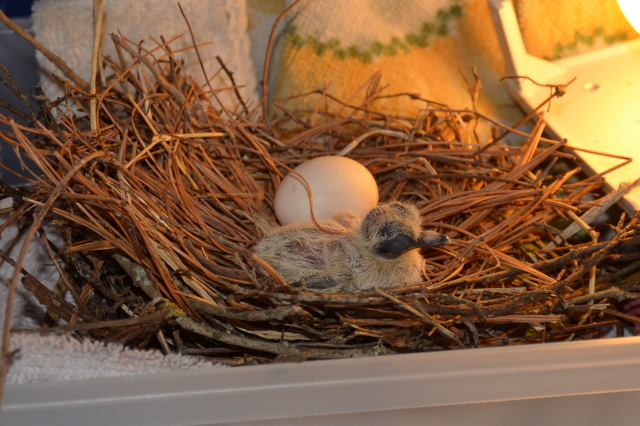 mourning dove
Question
baby mourning dove
Hello,
My boys found a baby
mourning dove
Question
baby mourning dove
Hello,
My boys found a baby
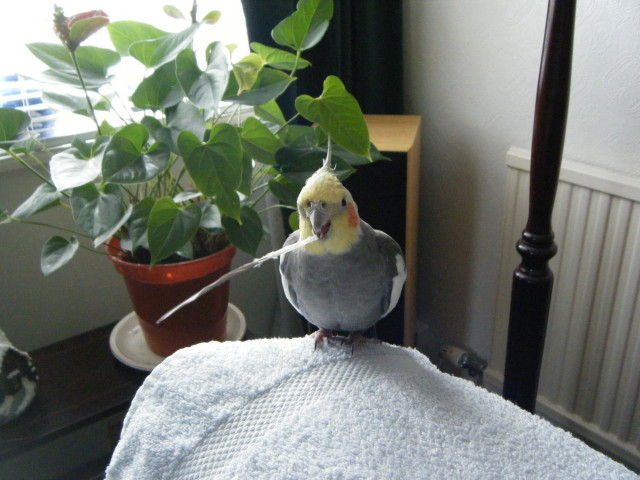 boris the cockatiel
Question
boris
Hello , I have a male cockatiel called b
boris the cockatiel
Question
boris
Hello , I have a male cockatiel called b
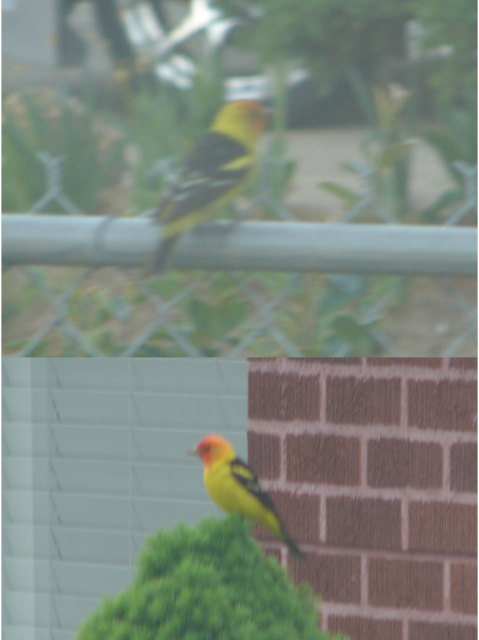 Wild or Domestic?
Question
Pretty Birds
There are these three birds in my
Wild or Domestic?
Question
Pretty Birds
There are these three birds in my
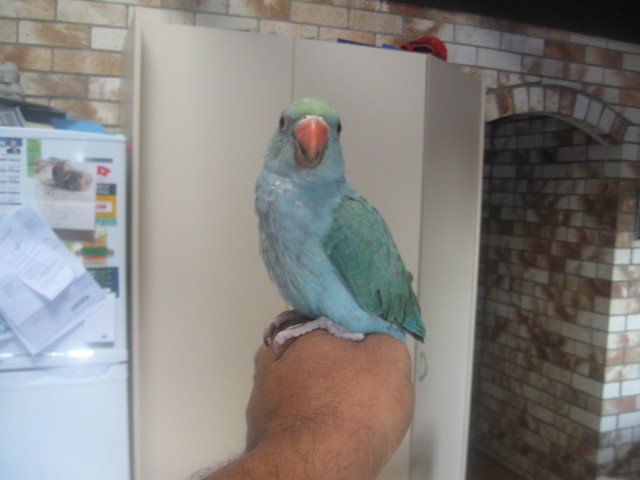 Color of my indian ringneck
Question
Boots
I have an eleven week old male ringneck
Color of my indian ringneck
Question
Boots
I have an eleven week old male ringneck
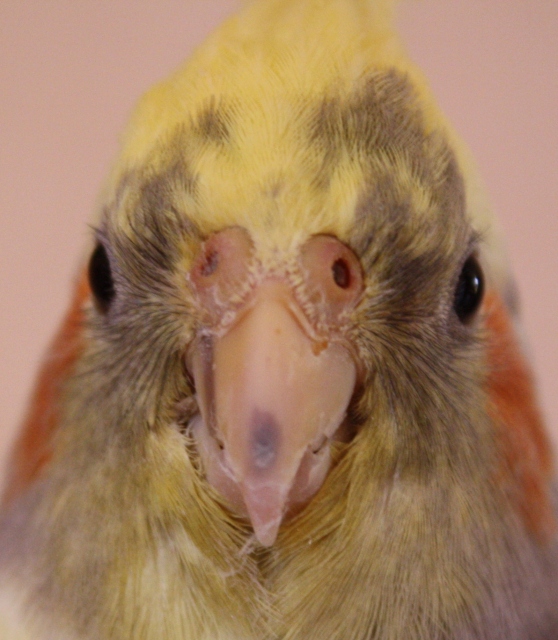 Bruise-like discoloration of beak (Cockatiel)
QuestionSasha
QUESTION: Our Cockatiel has develo
Bruise-like discoloration of beak (Cockatiel)
QuestionSasha
QUESTION: Our Cockatiel has develo